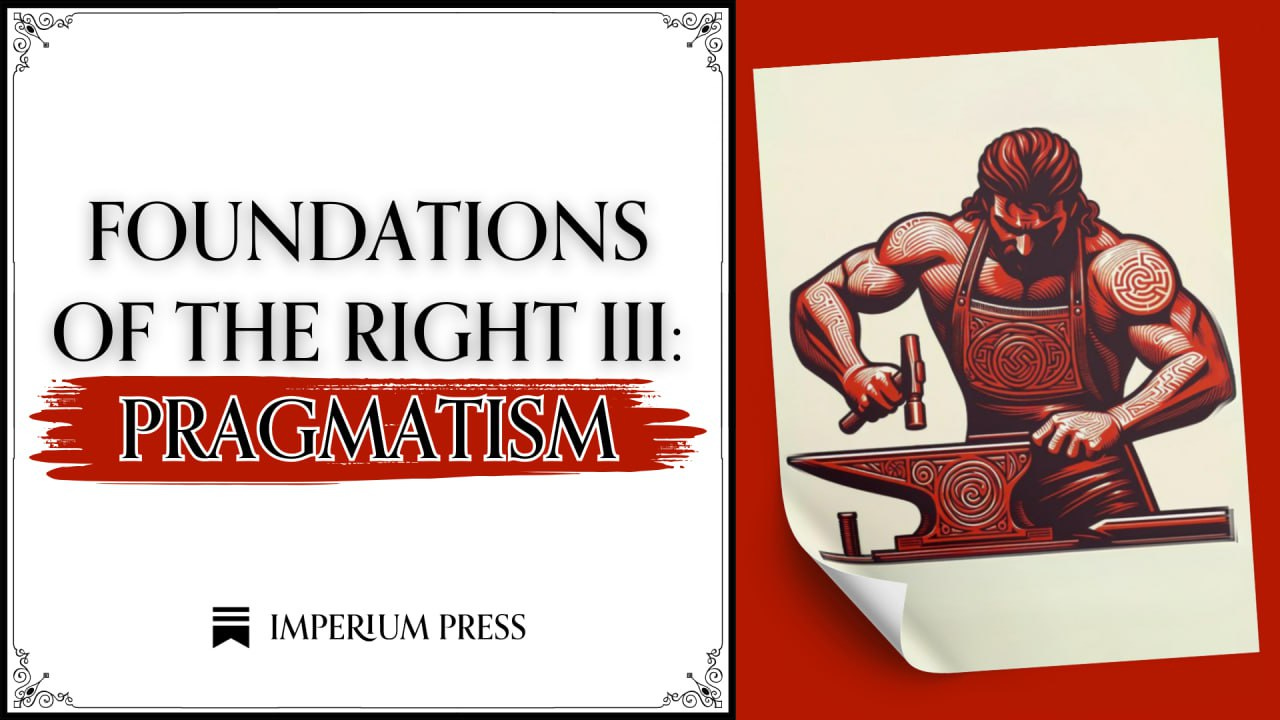Foundations of the Right III: Pragmatism
The Radical Immanence at the Heart of a Right-Wing Worldview
If you prefer the audio of this article, click here.
Back when I was an internet anon developing my reactionary worldview, I often sought out communists for debate. After all, a worldview is like anything else—it needs to be stress tested.
Usually they would try to draw me into fighting on their own turf, and I would find myself ensnared in autistic debates about calculating “socially necessary labour time” and so forth. While Marxism can be defeated on its own terms if you have the patience of a saint, I found that a much more effective debate tactic was simply to show that communism (as well as liberalism, democracy etc.) chronically and permanently undermines the stability of society, and under such conditions, ideas of right and justice don’t really matter. I found that most communists, when put under enough pressure, are simply willing to accept the destruction of everything they love if it means the destruction of everything they resent.
But healthy people certainly won’t accept that, and so this stability angle is generally effective at changing minds, which is why 2020 changed so many minds and has sent the regime into a legitimacy tailspin. The lesson of 2020, in the broadest sense, is that the consequences of liberalism are destruction. This is the ultimate argument, before which any arguments about right, morality, and fairness give way—a thing is to be judged by its effects.
Edmund Burke is hardly the strongest proponent of a right-wing worldview, but he understood this idea very well, and used it to justify tradition. His reasoning is unassailable, at least when it comes to institutions—what’s old is almost always superior to what’s new. Why? Because it has weathered the slings and arrows of outrageous fortune.
Old establishments are tried by their effects. If the people are happy, united, wealthy, and powerful, we presume the rest. We conclude that to be good from whence good is derived. In old establishments various correctives have been found for their aberrations from theory. Indeed, they are the results of various necessities and expediencies.1
By all accounts, it’s a mystery how such things as patriarchy, religion, and nationalism continue to exist. They have few capable defenders. They are reviled by the most powerful. They are systematically eliminated by every formal and informal means that polite society can muster. But the simple reason why they’re still with us, is because they work. Those who adopt them tend, at least in the long term, to win. We even have a heuristic for this, and it has been shown in scientific trials to be highly reliable—the Lindy rule. The rule is simple: you can judge the expected survival of something by knowing nothing more about it than how old it is.
This joining together of consequence and justification is known as pragmatism. It is a deeply empirical philosophy, which makes sense, since its ground of justification is to be found in this world. The American philosopher C. S. Peirce formulated his “pragmatic maxim” as a way to best clarify our ideas:
I only desire to point out how impossible it is that we should have an idea in our minds which relates to anything but conceivable sensible effects of things. Our idea of anything is our idea of its sensible effects; and if we fancy that we have any other we deceive ourselves. […] It appears, then, that the rule for attaining the third grade of clearness of apprehension is as follows: Consider what effects, which might conceivably have practical bearings, we conceive the object of our conception to have. Then, our conception of these effects is the whole of our conception of the object.2
In other words, not only are the effects of a thing what matters, they are ultimately all we know about it. Pragmatism’s basic insight is that all we can know is what has a claim on our attention, in other words, that truth is what you ought to believe.
This is a radical reformulation of supposedly “traditional” forms of truth, like that truth is correspondence or coherence and so forth. And it can look rather modern, because it is far and away the best account of how science works, for example.





